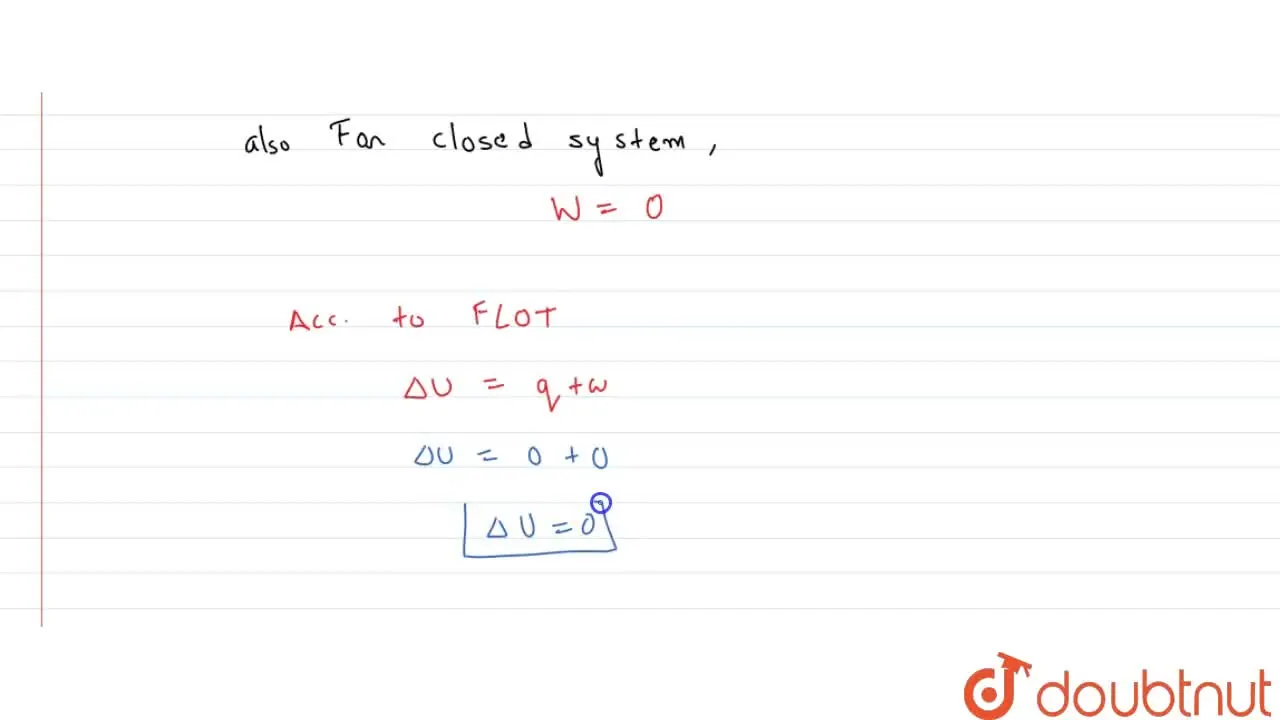Predict the change in internal energy for an isolated system at constant volume.
For isolated system there is no transfer of energy as heat, i.e. q=0 and there is no transfer of energy as work i.e., W=0. According to the first law of thermodynamics
ΔU=q+W
ΔU=0+0=0
Related Playlists
Similar Questions
The change in the internal energy of a substance
View SolutionWhat is the change in internal energy if 10 J of heat is given to system at constant pressure and 20 J of work is done by the system?
View SolutionDefine internal energy of a system.
View SolutionThere is no change in internal energy for an ideal gas at constant temperature.
Internal energy of an ideal gas is a function of temperature only.View SolutionCp is always greater than Cv for a gas, which of the following statements provide, partly or wholly, the reason for this?
(i) No work is done by a gas at constant volume
(ii) When a gas absorbs heat at constant pressure, its volume must change
(iii) For the same change in temperature, the internal energy of a gas changes by a smaller amount at constant volume that at constant pressure
(iv) The internal energy of an ideal gas is a function only of its temperatureView SolutionAssertion: Universe as a whole may be viewed an isolted system.
Reason: Total energy of an isolated system remain constant or stretched.View SolutionDefine internal energy and enthalpy of a system.
View Solution1 g of water at 100∘C is converted into steam at the same temperature. If the volume of steam is 1671 cc find the change in internal energy of the system. Latent heat of steam =2256Jg−1.
View SolutionRefer to figure. Let ΔU1 and ΔU2 be the changes in internal energy of the system in the processes A and B. then
View SolutionShow that the heat absorbed at constant volume is equal to the increase in the internal energy of the system, whereas that at constant pressure is equal to the increase in the enthalpy of the system.
View Solution


